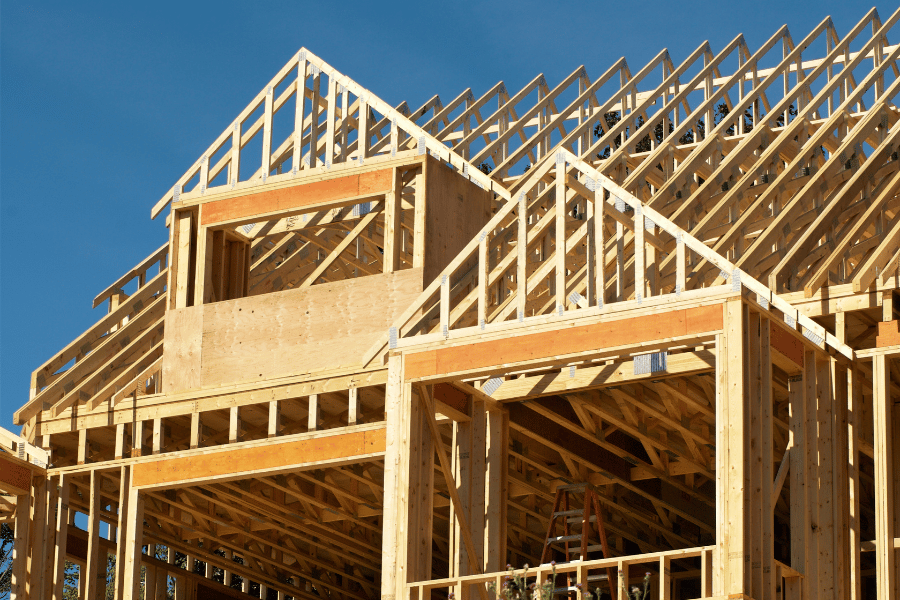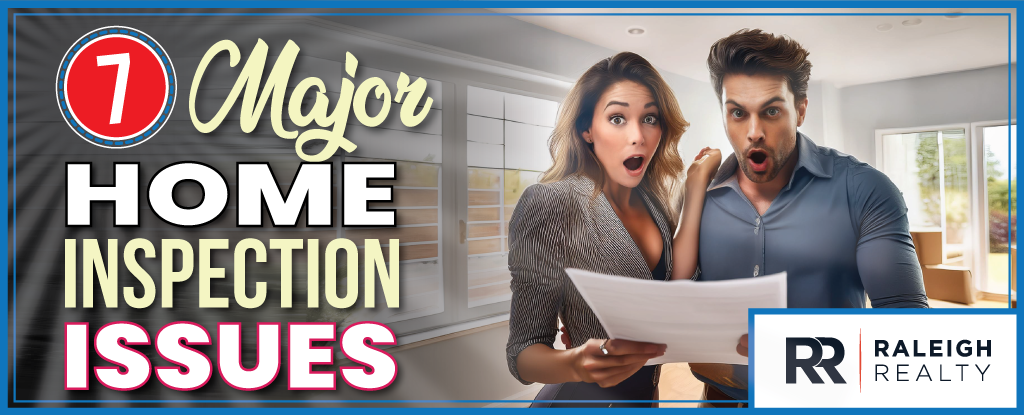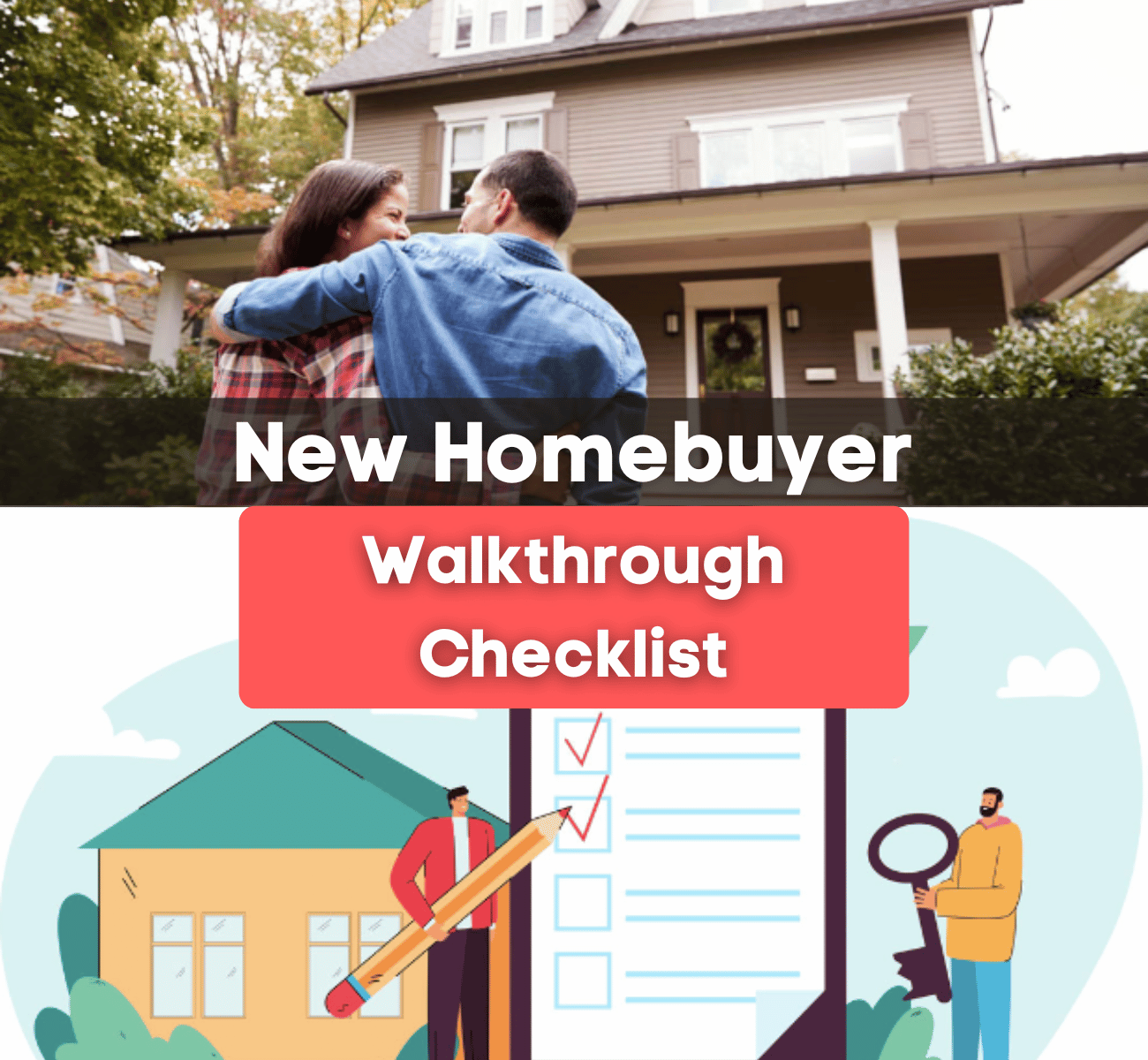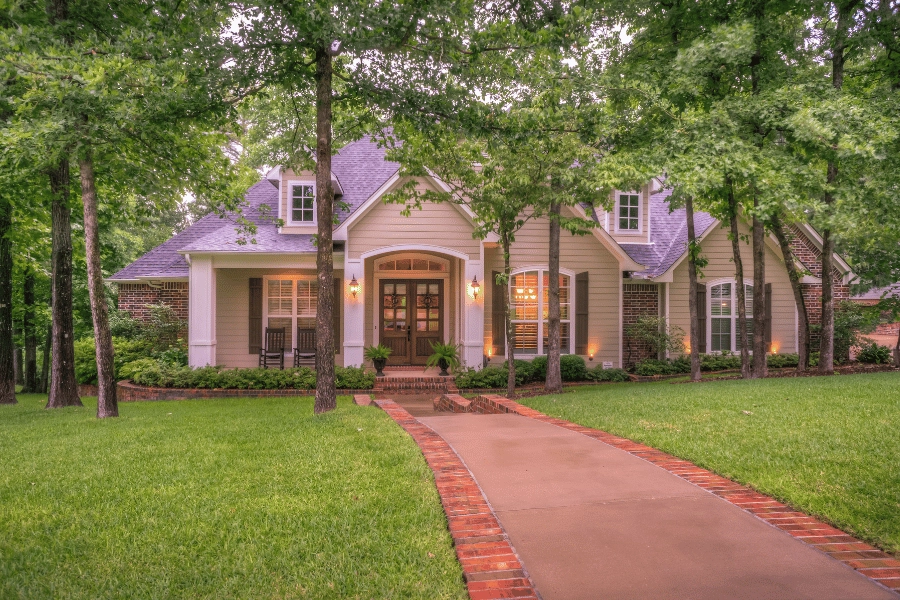New Construction Home Buying Tips
Are you buying new construction? Here are eleven things you need to know when buying a new construction home!
Whether you are a first-time home buyer or have owned multiple homes, new construction sometimes seems like the best option. If you have been searching the real estate market for a while, purchasing a newly built home might be the answer.
New construction refers to a brand-new home that has never been lived in before, which is part of the allure. Since the house is brand-new, everything is pristine, and no parts need repair.
There are multiple options if you decide that new construction is the best path for you and your family, from custom-built options to purchasing a home from a developer.
How Do I Buy a New Construction Home?
That said, if this article reads with familiarity, that's because there are similarities between buying an existing home and buying new construction. If you haven't read the most recent guide to purchasing a home article yet, stop and read that first. Then, after you finish this article, read this one - how much does it cost to build a house? It's filled with great information from some of the best Realtors®. This article is intended to help people who have made their educational foundation with the prior reading and take it further when buying new construction.
Knowing how to buy a house will help you significantly in your new construction home-buying process.
Buying a home is one of the most significant financial transactions of one's life, and it can be intimidating for anyone. Buyers need to educate themselves to protect their equity. In our market here in Raleigh, new construction homes are popular due to the city's significant growth and expansion.
By the end of this article, you will learn:
- How to buy a new construction home
- Questions to ask your builder
- Things to know when buying a new construction home
- Do I need a Real Estate Agent to buy a new home?
- How to make an offer on a new construction home
- New construction home buying process
- How to identify a good builder for new construction
- What to look for in New Construction and New Community plans
If you're buying new construction and want to learn more about the process, this guide will offer eleven tips. We will also be linking to some incredible content on the web. With so many articles out there, it's essential to read what will help and avoid reading what isn't.
Buying a new construction home is an entirely different dynamic than purchasing a house someone has lived in. You will buy directly from a builder who has built the home to sell it for a profit. This builder needs to move to a new home to move on to the next project. To understand the best strategies for buying new construction, you need to be able to put yourself in the builder's shoes.
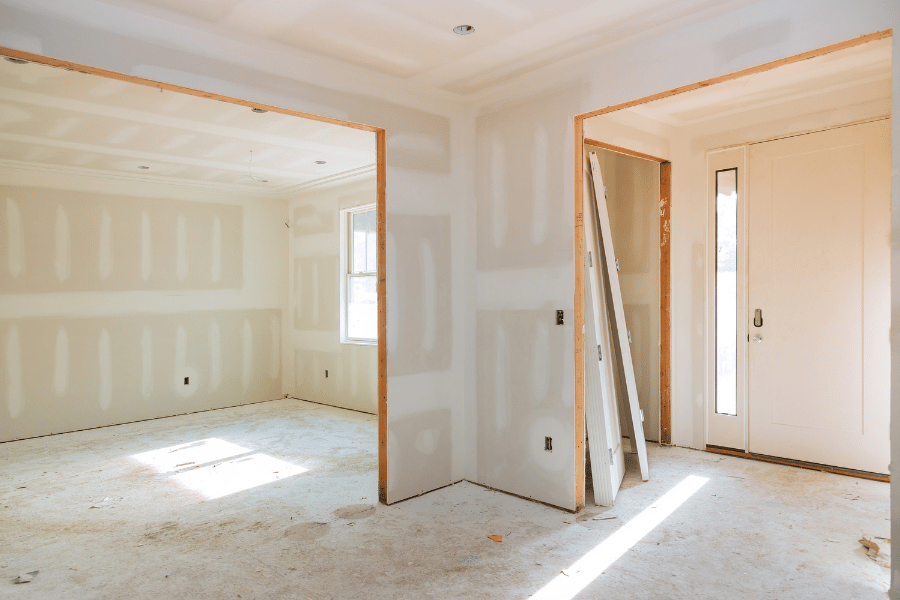
Here is what you need to know about buying new construction
Educate Yourself on the New Home Buying Process
This guide helps educate consumers on how to buy new construction homes from builders. Not having a strategy, the right team, and the proper education could cost you tens of thousands of dollars in the purchase process.
Understanding neighborhood details and plans will help determine which community is right for you. This list is in no specific order, as it matters what your priorities are.
Equally important as the new community details is the research you do on the developer or builder.
Education is the most crucial part of buying a new home, and you should start there. Once you educate yourself, it's time to find the money.
Team Up With a Lender on a Mortgage
Any time we talk to someone who is going to buy a home or even considering buying one, the first thing we recommend to them, after education, is to go shopping for money. Literally.
A fraction or two of a percentage point can save you thousands and thousands of dollars annually.
The most important part of the home buying process is to find the right team to work with, and the first teammate you should see should be a mortgage lender.
Many of our clients ask us, 'What do I need to know about mortgages when buying a home?' With so many different options, what makes the most sense for me?
A lot goes into choosing the right mortgage and lender, which is why shopping for money early on is essential.
At the start of any home purchase, the first thing a buyer needs to do is shop for a lender. Raleigh Realty recommends buyers ask at least five lenders for their rates and options. Even the slightest difference over 30 years could save you upwards of $20,000.
You Want a Realtor When Buying New Construction
Did you know that builders pay the agent's commission? That's right, the builder will pay your agent to represent you and negotiate a better deal for you. Why wouldn't you want an agent to represent you and ensure you receive the best deal possible?
Finding a top local Realtor® who is experienced in negotiating with builders will be one of the most important things you do in the home-buying process. You must make sure that your Realtor is someone who is going to work well with you. Do not be afraid of Realtors® who are transparent. It would be best to embrace these Realtors® because they will tell you the truth, whether pretty or ugly.
You'll also want a Realtor® who will explain everything, including working with a real estate agent's guide. Every Real Estate Agent is different, and it's essential that the Realtor® you're working with can help you the most in the home-buying process.
Once you've selected a Realtor®, it's time to develop a plan. What criteria are you looking for in your next home? Your Real Estate Agent will be able to help you figure out your wants and your must-haves. Now that your team is together, it's time to begin researching different builders in your area.
It's important to understand that looking at homes online versus in person is an entirely different experience. For new construction, this article rings true because, chances are, the pictures you're looking at are of a home that has yet to be built.
So, if you're buying a home that has yet to be built, what's the most important next step?
Research the Builder When Buying New Construction Homes
Raleigh's new construction differs from that in other parts of the country. The builders here cannot build fast enough to keep up with the consumer demand, which poses a new set of challenges when negotiating the best deal with builders. You must ensure you're working with a top local real estate agent. They will make sure your new home is the best deal possible.
Researching the best new home builders and new home communities in the area is not the most fun, but it is super important. It's a lot easier than you think, too. We recommend that our clients start with a Google search for the 'best new construction builders in Raleigh' or 'top new communities in the Triangle area.' The time and effort you spend researching the best new construction homes will pay off.
You can look online for reviews, testimonials, and news on each development you're interested in. If you can connect with current residents online through social media, you will have great informational resources to make an educated decision. Plus, you want to learn about your potential neighbors as well.
Feel free to ask the builder many questions since there is a good chance they will also have a lot for you. One good question is, 'What are the plans for the new development?'
You and your Realtor® will list the top new communities and the top new homes you want to see. Then, it's time to go hunting.
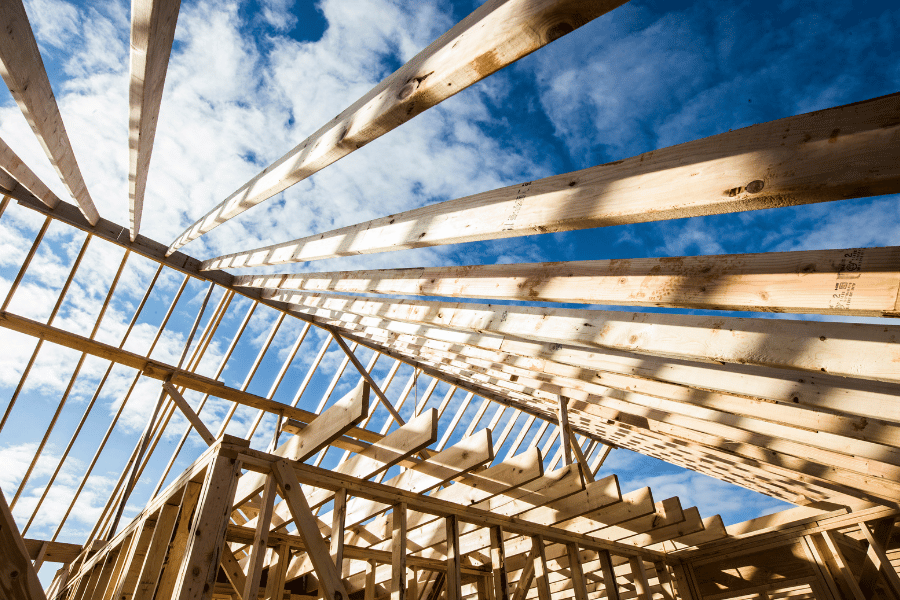
Creative Negotiations When Buying New Construction
You want a Realtor® representing you during negotiations for your new construction home. You might think that by cutting out a Realtor®, you'll receive a better price; however, builders are highly unlikely to budge on price. This is why you need an expert to work for you during negotiations—someone who knows the ins and outs of securing the best deal possible.
Everyone wants the best deal possible; sometimes, that doesn't necessarily mean a lower price. This is especially true when you're making an offer on new construction homes. Often, buyers will assume the best way to negotiate with a builder is to have them drop the price. This is not the case—upgrading is the best way to deal with builders.
Builders are reluctant to drop prices because they must maintain a specific value for their neighborhood and future buyers. This doesn't mean they won't lower the price because they often will; it just means you will get more from negotiating upgrades.
Giving upgrades to consumers is an easy way for them to maintain the value of the neighborhood while providing the customer a deal in a fashion that won't upset the neighbors who probably just purchased a home.
Make Sure Everything is in Writing
If you're working with a respectable builder, there is a good chance they will honor what they say; however, they may genuinely forget the promises they made to you.
Working with a builder without a Realtor® could cost you thousands of dollars because they know how to negotiate. An experienced Realtor will ensure that everything is in writing and will make sure the documents are signed.
You're Buying a New House, Not the Model Home
Typically, the model home that builders have their prospects walkthrough is full of all the upgrades and amenities, so it's essential to understand what your model comes with and doesn't. You can sometimes offer to buy the model home if that's the one you'd like to purchase.
When you see a car on display, it's always the upgraded version and new-construction homes are the same.
We suggest writing everything you like about the model home, even the colors, so the builder is fully aware of your interests.
A home that has yet to be built can be customizable to a certain degree. However, the builder will have limitations on what they can and can't do. Ultimately, the cost will change as you add things you want, so be wary of price as you ask the builder for features in your new home.
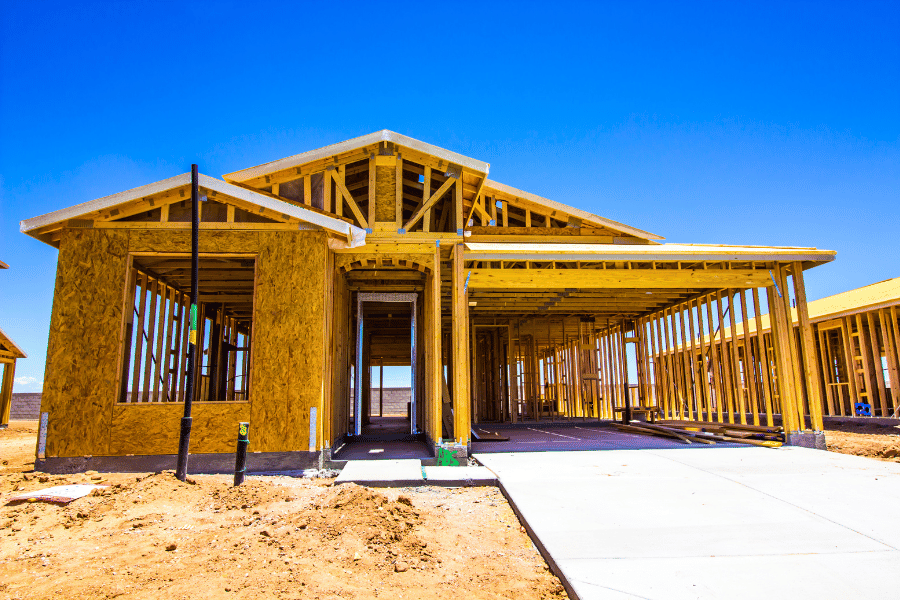
New Construction Home Guarantee
When you buy new construction real estate, you sometimes buy something that has yet to exist. As mentioned above, please ensure everything is in writing and that your builder will give you a guarantee. A strong Realtor is essential to ensure you're covering all of your bases - you would only go to court with a lawyer, and buying new construction is the same.
An example of one thing you'll want to be guaranteed by the builder is a completion date, especially since you may have to make a living arrangement until the new home is built. A home warranty is another crucial question to ask, which we will cover later in this article.
Do I need a home inspection for a new construction home?
Yes. People make mistakes, and it's possible a mistake was made in building your new construction home, which is why a home inspection is essential. Inspectors can find many things the builder may need to remember to do or potential problems that could be caused down the road.
A home inspector is someone coming in to review the work done on your home; you'll want to make sure they give you feedback. You did make a significant financial purchase, after all.
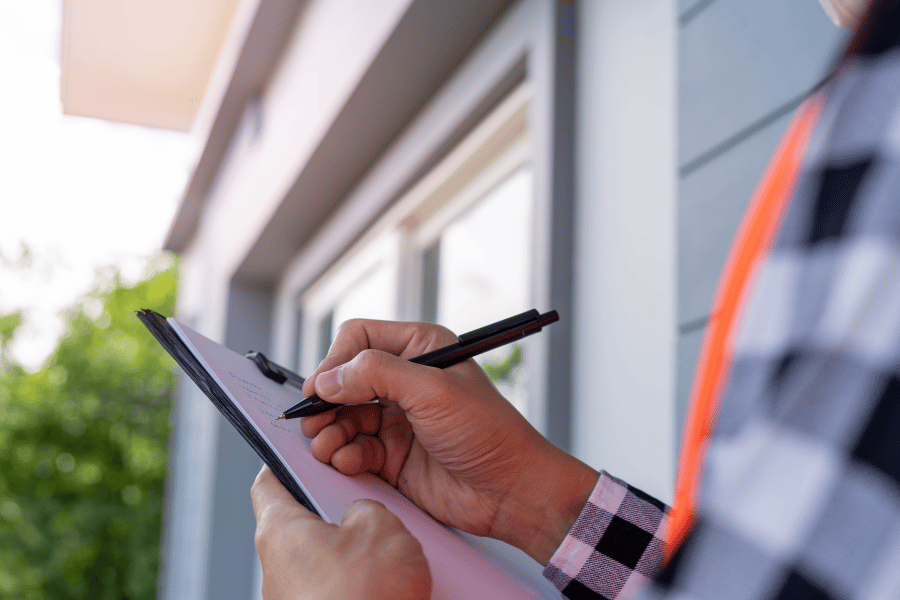
What's Covered In A New Construction Home Warranty?
So you're almost ready to pull the trigger on a new home and wonder what's covered in the warranty. Typically, builders will have a home warranty they can give you; however, it's not uncommon for a builder to have a third party involved in a home warranty.
Coverage for new construction real estate varies from builder to builder. Please ensure you have a proper understanding of what is covered by the builder or other companies involved in creating your new home. Sometimes, you can negotiate the warranty into the deal or add provisions to protect things the warranty may not typically cover.
You need to do a final walk-through before you complete the purchase, so please make sure it's something you plan for before closing on your new home.
The Future of Your Neighborhood Is Important
One crucial step that many people may forget is that you will move into this home to live there. What does the future of the new community look like? How about the future of the city? Are there specific priorities in a neighborhood you'll live in amenities-wise? There are a lot of neighborhood details you should consider when buying a home.
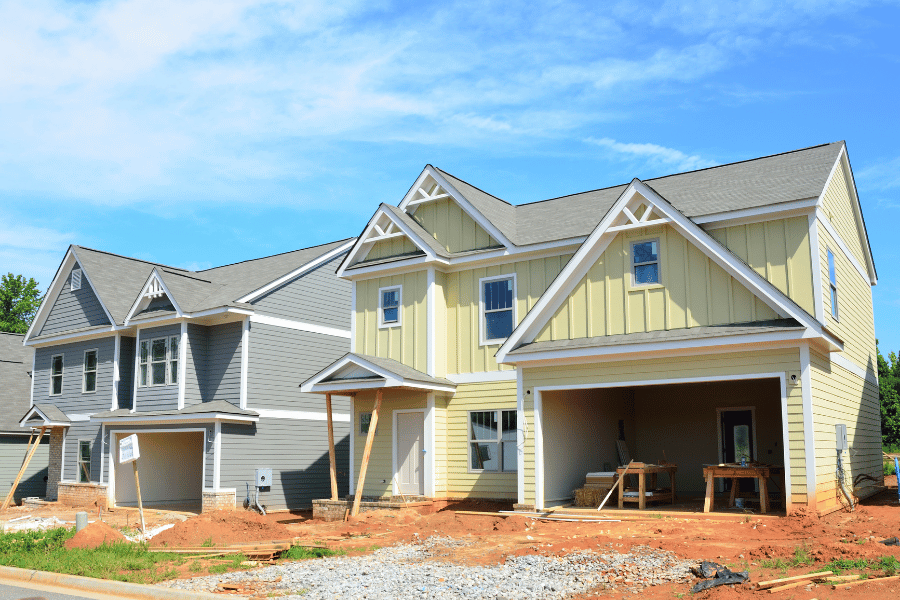
Downpayment on New Construction Homes
One of the more frequent questions we receive is regarding the downpayment on a new construction property and how that works. It will be different for each builder and each neighborhood, and it's unique from buying a resale home.
Often, the builder will require a 'deposit' that may or may not be refundable. This deposit is usually between $3,000 and $ 20% of the purchase price. During hot and cold markets, this deposit amount will vary. Each builder has its contract, so it's essential to read through and understand it before you give the builder your deposit.
If you have any questions, it's always good to ask a real estate professional who has likely been through this process dozens of times.
FAQs on New Construction
Can you Negotiate on New Construction Homes?
Yes, you can negotiate on new construction homes — you're far better off negotiating for 'things' than for money off the purchase price. Even negotiating closing costs is more accessible than negotiating the purchase price because builders want the final price as high as possible for future appraisals in the neighborhood.
You may strike a great deal if you're the first or second buyer in the neighborhood. Homes will be priced higher after the first few sales, so getting in the door early might benefit you.
Is New Construction a Good Investment?
New Construction is often a better investment than resale homes, thanks to the property's age. New Construction homes with only one owner will often appreciate faster than an older home that has usually transferred ownership. The fact of the matter is people want newer homes.
How Much Money Do I Put Down on a New Construction Home?
There is a builder deposit that you will put down on your new construction home. This builder's deposit is often 3% of the total selling price. Some builders will go as low as $3,000 for builder deposits. Many great builders will negotiate the money down, so feel free to ask and see if they have any flexibility.
Final Thoughts on New Construction Homebuying
Buying a home is a complicated process, and buying new construction is similar and different to existing homes. Some of the similarities regard the purchase process. At the same time, the differences can be found mainly in negotiations, research on the builder, and looking toward the future for the new community neighborhood plans.
New construction homes in Raleigh, NC, are plentiful as they are found near Durham, Cary, Chapel Hill, and even smaller towns like Apex or Holly Springs. Many new communities are being built because many people are moving here for jobs in the Research Triangle and because of the family-friendly atmosphere that the area provides.
If you're thinking of buying a new home or want to learn more about the building process, contact us so we can help.
